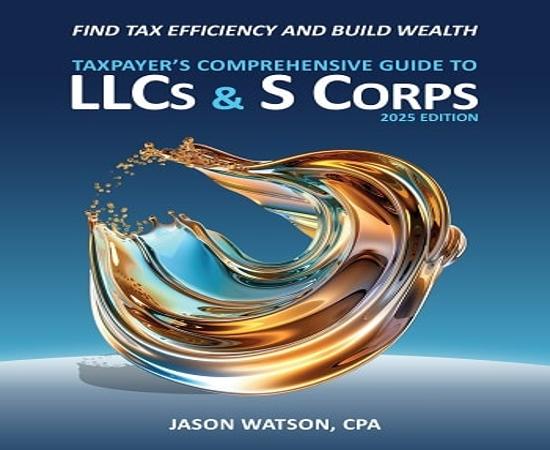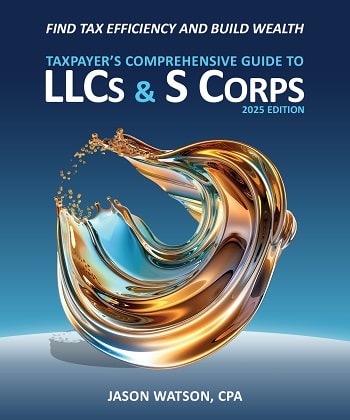The Ultimate Resource: taxpayer’s comprehensive guide to LLCs and S Corps
Whether you’re a seasoned business owner or just starting out, understanding the intricacies of tax entities like LLCs and S Corps is crucial. In this comprehensive guide, we’ll delve into the key aspects of these structures, their benefits, and frequently asked questions that taxpayers often encounter.
Introduction: Navigating the Complexities
When it comes to managing your finances and minimizing tax liabilities, choosing the right entity structure is paramount. The taxpayer’s comprehensive guide to LLCs and S Corps by Jason Watson is a valuable resource that demystifies these structures and empowers taxpayers to make informed decisions.
Benefits of LLCs and S Corps
Both Limited Liability Companies (LLCs) and S Corporations (S Corps) offer unique advantages that can benefit business owners in various ways. Some of the key benefits include:
- Pass-through taxation, which avoids double taxation
- Limited liability protection for owners
- Flexible management structure in LLCs
- Potential tax savings through S Corp election
Understanding LLCs and S Corps: A Closer Look
LLCs are a popular choice for small businesses due to their flexibility and simplicity in operation. They offer liability protection for owners while allowing for pass-through taxation. On the other hand, S Corps are known for their tax advantages, especially for businesses with significant profits.
Frequently Asked Questions
1. Can I switch from an LLC to an S Corp?
Yes, you can elect for your LLC to be treated as an S Corp for tax purposes by filing IRS Form 2553.
2. Are there restrictions on who can be an owner of an S Corp?
S Corps have strict ownership requirements, such as limiting shareholders to U.S. citizens and resident aliens.
3. Do both LLCs and S Corps offer liability protection?
Yes, both entities provide limited liability protection, shielding owners’ personal assets from business debts and liabilities.
4. How are profits distributed in an LLC versus an S Corp?
In an LLC, profits are distributed according to the ownership percentages of the members. In an S Corp, profits are allocated based on each shareholder’s ownership stake.
5. What are the tax implications of converting from an LLC to an S Corp?
Converting from an LLC to an S Corp can have tax consequences, including potential capital gains tax on appreciated assets. It’s essential to consult with a tax professional before making the switch.
In Conclusion
The taxpayer’s comprehensive guide to LLCs and S Corps is a valuable tool for individuals navigating the complexities of tax entities. By understanding the benefits and nuances of LLCs and S Corps, taxpayers can optimize their financial strategies and minimize tax burdens. Take advantage of this resource to empower yourself with knowledge and make informed decisions for your business.


